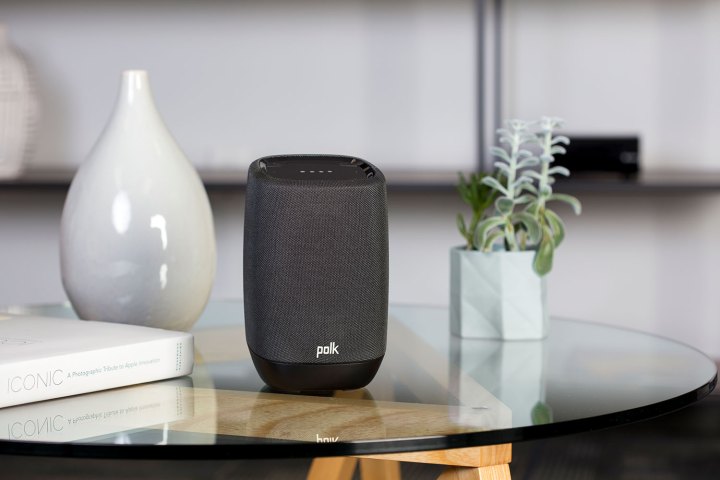
Polk Audio has been around for nearly 50 years now, but the company is far from stagnating. For proof, you need look no further than the company’s MagniFi line of soundbars, which feature Chromecast built in for maximum audio flexibility. Now the company is headed even further in that direction with its new Polk Assist smart speaker, which is powered by Google Assistant.
Voice control is one of the main draws of Google Assistant, letting you control every aspect of music playback without touching the Polk Assist, but it’s not the only advantage. Proof of that comes in how easy the speaker is to set up. Simply plug the Assist into power and download the free Google Home app for your Android or iOS device. The app will take it from there, walking you through the setup process.
The Polk Assist also includes Chromecast built in, meaning it can operate as part of a multiroom wireless audio network or even as the hub of it. Compatible apps include Spotify, Pandora, Google Play Music, TuneIn, iHeartRadio, and NPR, and since audio is streamed directly to the speaker over its built-in Wi-Fi connection, there’s no drop in audio quality as there would be with another technology like Bluetooth.
“Polk Audio is committed to providing premium audio solutions enabled by the Google Assistant and Chromecast. With the addition of the Polk Assist smart speaker, consumers can easily add Google Assistant’s hands-free convenience and Chromecast’s hi-res multiroom audio streaming to their home,” said Michael Greco, Polk Audio’s global brand director. “Polk Assist complements and works with our existing Chromecast-enabled sound bars, including the MagniFi Mini and MagniFi Max.”
At launch, the Polk Assist will be plenty smart, but it will continue to get smarter. The speaker is one of the first to be built using certified Android Things System-on-Modules, which get regular security and feature updates from Google. Unlike older speakers, the Polk Assist will keep itself up to date much as your phone or computer might, meaning you never have to worry about manually installing crucial firmware updates.
The Polk Assist will launch in June and will retail for $200. For more information, see the Polk Audio website. If you’d like a closer look at the competition, check out our guide to the best smart speakers.
Editors' Recommendations
- Google Assistant loses 17 features as the company lays off employees
- The smart home market might see big changes in 2023
- Amazon adds spatial audio to the Echo Studio smart speaker
- Is it feasible to go all-in with one smart home ecosystem?
- The best Google Home smart plugs


